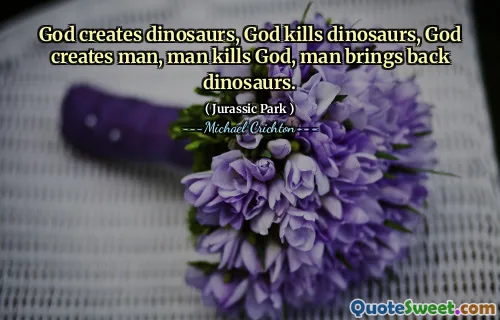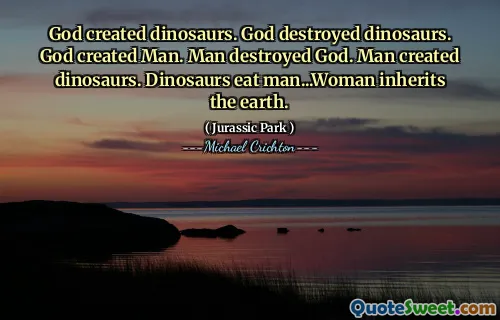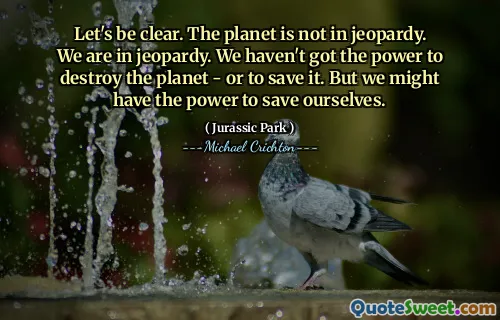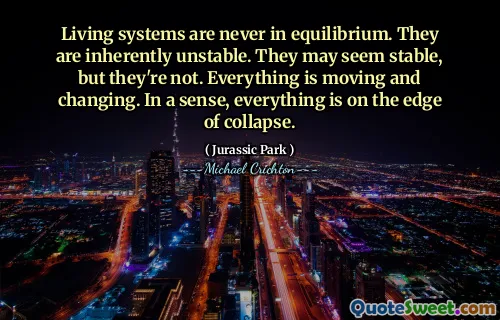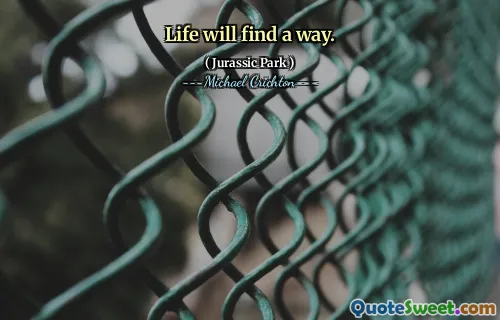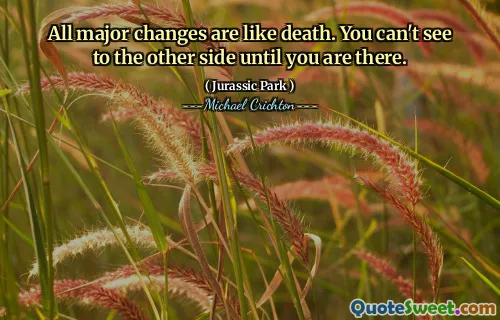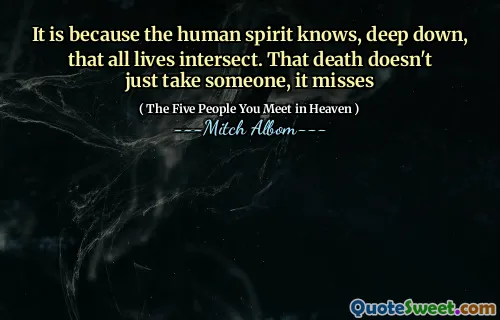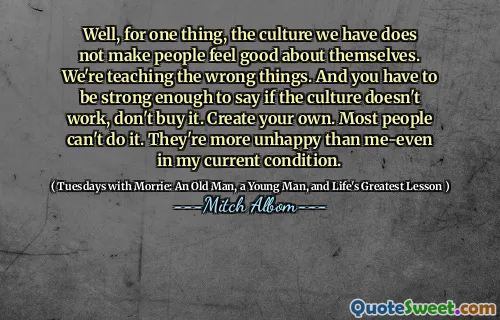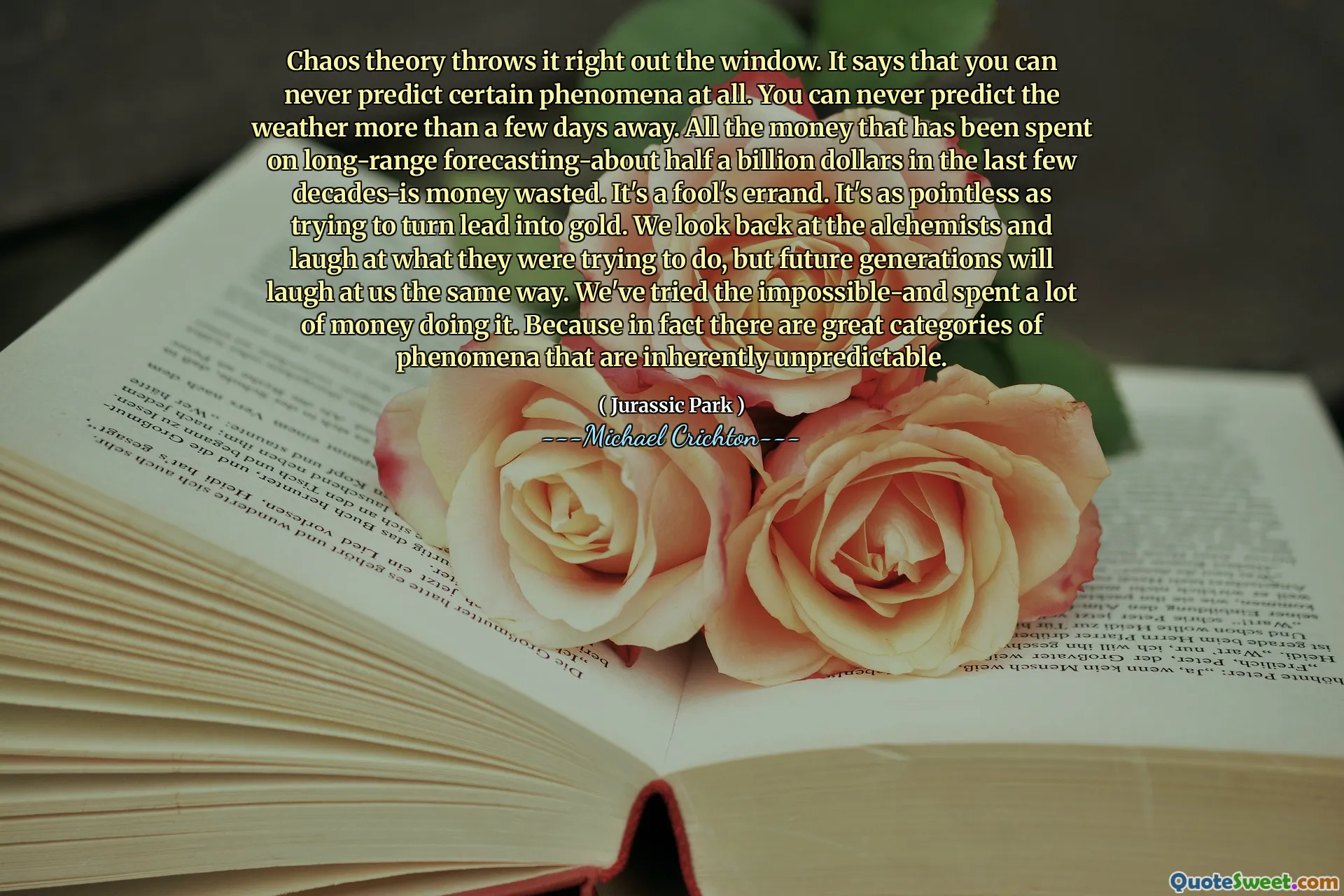
混乱理论将其扔到窗口之外。它说您永远无法预测某些现象。您永远无法预测天气超过几天。在过去的几十年中,所有花费的钱都花在了远程预测中,这浪费了。这是傻瓜的差事。就像试图将铅变成黄金一样毫无意义。我们回顾炼金术士,嘲笑他们试图做的事情,但是后代会以同样的方式嘲笑我们。我们已经尝试了不可能的事情,并花了很多钱。因为实际上,有大量的现象本质上是不可预测的。
(Chaos theory throws it right out the window. It says that you can never predict certain phenomena at all. You can never predict the weather more than a few days away. All the money that has been spent on long-range forecasting-about half a billion dollars in the last few decades-is money wasted. It's a fool's errand. It's as pointless as trying to turn lead into gold. We look back at the alchemists and laugh at what they were trying to do, but future generations will laugh at us the same way. We've tried the impossible-and spent a lot of money doing it. Because in fact there are great categories of phenomena that are inherently unpredictable.)
混乱理论表明,某些现象(例如天气模式)在根本上是不可预测的。尽管对远程预测进行了巨大的投资,但事实证明,试图预测未来事件的尝试很大程度上是徒劳的,类似于炼金术士对将铅变成黄金的误导。这就提出了有关在此类预测上花费的资源的有效性的疑问。
根据迈克尔·克里奇顿(Michael Crichton)的“侏罗纪公园”(Jurassic Park)的说法,用于预测的资源不仅浪费了,而且还被视为徒劳的练习。正如历史所表明的那样,一些自然事件根本无法预料到,后代可能会回顾当前的努力,我们对过去的炼金术实践保留了同样的怀疑主义。
